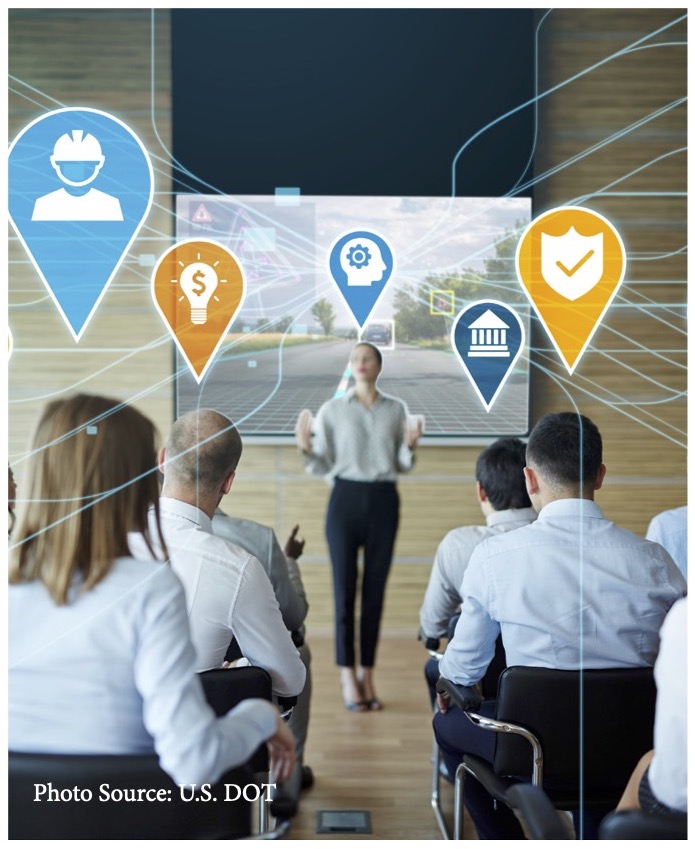 The U.S. Department of Transportation’s ITS Professional Capacity Building Program (ITS PCB) sponsors one or more annual Academic Workshops to engage faculty from universities, community colleges, and technical institutions, as well as representatives from public, private, and professional organizations. The goal of these workshops is to disseminate and incorporate ITS education into school curricula and programs of study and to capture vital user feedback to help the ITS Joint Program Office (JPO) develop new tools to advance ITS learning.
The U.S. Department of Transportation’s ITS Professional Capacity Building Program (ITS PCB) sponsors one or more annual Academic Workshops to engage faculty from universities, community colleges, and technical institutions, as well as representatives from public, private, and professional organizations. The goal of these workshops is to disseminate and incorporate ITS education into school curricula and programs of study and to capture vital user feedback to help the ITS Joint Program Office (JPO) develop new tools to advance ITS learning.
In the lead-up to each Academic Workshop, ITS PCB program staff invite faculty and their regional partners to explore key areas identified at prior workshops to bring a well-developed context and list of action items up for workgroup consideration.
Some of these workgroups have transitioned into Communities of Practice to keep this conversation, information sharing, and exploration of new innovations going year-round. The NNTW is supporting this effort by developing new areas of engagement that are open for people to join:
- Successful Community/Employer/Higher-Ed ITS Partnerships: ITS projects represent highly integrated efforts across multiple sectors, implementation agencies, and city/regional planning teams. How can academic programs be better aligned with public and private actors to keep up with this industry’s long-term planning and future workforce knowledge/skills needs?
- Expanding ITS Resources for the Classroom: Prioritize the dissemination of tools that advance student skills and interest in ITS learning and competency building, with a focus on the hands-on learning experience as a way to enhance curriculum and support instruction (see current resources).
- Attracting New & Future Skilled Workers to ITS by Building-out the ITS Career & Academic Pipeline to Secondary Education: Introducing high school students to ITS as a career option and building an understanding of this field into STEM-focused curriculum is another critical step towards building this future workforce. Specific approaches are needed to introduce ITS into secondary school settings and to provide students with a bridge to post-secondary opportunities, and it is important to attract students from under-represented populations to study and work in ITS disciplines. As with most job sectors, the future of ITS is dependent upon the availability of a large and diverse pool of well-trained and qualified workers. Adopting new strategies of engagement, attraction, and support that focus on non-traditional, under-represented populations is a critical step towards building this future workforce.
- Rural Applications of ITS: Deploying ITS applications within a rural context can expose important differences to that of more formally developed, urbanized regions. Understanding those differences and potentials can provide important guidance to higher ed programs within institutions that serve rural regions and Tribal territories.
For more information or to express interest in joining an ITS Academic Working Group, please contact:
Glenn McRae, Director of the Northeast Transportation Workforce Center (glenn.mcrae@uvm.edu)